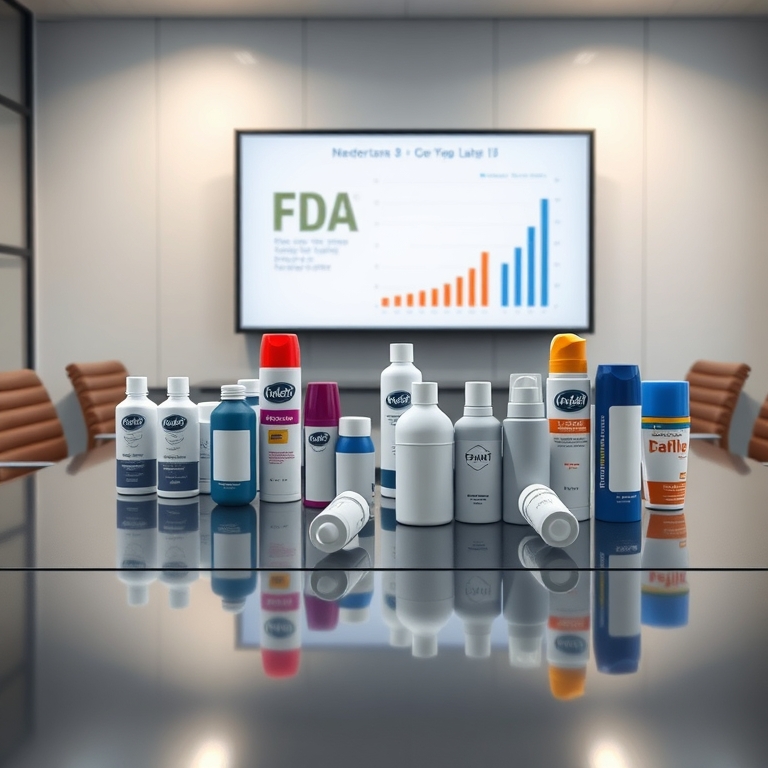In an unexpected move that sent ripples through the personal care industry, the U.S. Food and Drug Administration (FDA) has issued an urgent recall on several popular deodorant brands, citing significant safety concerns. This recall, announced on Thursday, has left both consumers and manufacturers scrambling to assess the potential impact on health, business operations, and consumer trust.
The FDA’s decision comes after a series of rigorous tests conducted over recent months revealed the presence of potentially harmful substances in the affected deodorant products. The primary concern centers around benzene, a chemical compound classified as a carcinogen by numerous health authorities, including the World Health Organization. Long-term exposure to benzene is known to increase the risk of developing serious health conditions, including leukemia and other blood disorders. The presence of this substance at elevated levels in products meant for daily use has understandably triggered alarm.
The deodorants subject to the recall span several well-known brands, many of which have been consumer staples for years. This turn of events has put the spotlight on these companies, raising questions about their manufacturing processes and quality control measures. In response, the affected manufacturers have pledged full cooperation with the FDA and have initiated their own investigations to determine how these contaminants infiltrated their products.
The recall has prompted a broader discussion about the regulatory measures in place for personal care products in the United States. Unlike pharmaceuticals, which undergo stringent pre-market approval processes, personal care products are not required to meet the same level of scrutiny before they hit the shelves. This has led to calls from consumer advocacy groups for more stringent regulatory oversight, arguing that the current system is inadequate to ensure consumer safety.
From a business perspective, the recall poses a significant challenge to the affected companies. Not only do they face the immediate logistical nightmare of pulling products from shelves across the country, but they also have to manage the long-term damage to their reputation. Trust is a crucial currency in the consumer goods market, and any erosion of this trust can have lasting repercussions. These companies will likely need to invest heavily in rebuilding their brand image, which may include revamping their manufacturing processes, enhancing transparency, and engaging in robust consumer outreach efforts.
In the short term, the financial implications of the recall are daunting. The costs associated with recalling a product are substantial, encompassing everything from logistics and disposal to lost sales and potential legal liabilities. For publicly traded companies, the stock market has already reacted, with shares in the affected firms taking a hit as investors digest the news and its potential impact on future earnings.
For consumers, the recall is a stark reminder of the importance of vigilance when it comes to the products they use daily. Many are now left wondering how a substance as dangerous as benzene could go undetected in products they have trusted for so long. This revelation has sparked a surge in demand for safer, more natural alternatives, as consumers seek to protect themselves from similar incidents in the future.
The FDA, for its part, has assured the public that it is working diligently to address the situation. In a statement, the agency emphasized its commitment to protecting consumer health and urged the public to discontinue use of the recalled products immediately. The FDA also noted that it will continue to monitor the situation closely and work with manufacturers to ensure that corrective measures are implemented swiftly and effectively.
Industry experts are already speculating about the potential long-term implications of this recall on the personal care market as a whole. There is a growing expectation that regulatory scrutiny will intensify, with possible reforms aimed at closing the gaps that allowed such a situation to develop. Manufacturers might soon face more stringent testing and reporting requirements, a shift that could reshape the landscape of product development and marketing.
In the meantime, the affected companies are likely to take a hard look at their supply chains and quality assurance protocols. The presence of benzene in these products raises questions about the sourcing of raw materials and the adequacy of testing methods. Addressing these issues will be paramount not only to prevent future recalls but also to restore consumer confidence.
As the dust settles, stakeholders across the industry are bracing for what promises to be a challenging period of transition. The recall has underscored the critical importance of safety and transparency in the personal care sector and has cast a spotlight on areas ripe for improvement. While the path forward may be fraught with difficulties, it also presents an opportunity for companies to innovate and rebuild trust with consumers, ultimately leading to a safer and more reliable market for all.
In conclusion, the FDA’s urgent recall of deodorants over safety concerns marks a pivotal moment for the personal care industry. As manufacturers, regulators, and consumers navigate the fallout, the incident serves as a powerful reminder of the need for vigilance and accountability in ensuring the safety of everyday products. The coming months will undoubtedly bring further developments, as the industry grapples with the challenges and opportunities that lie ahead.

Leave a Reply